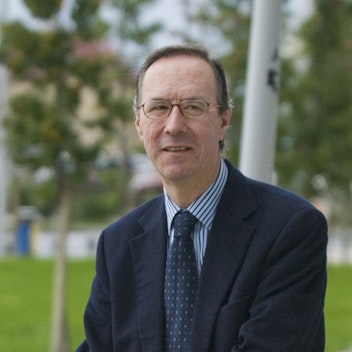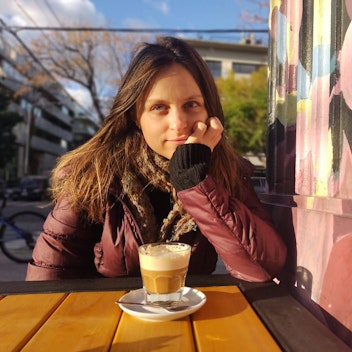![[IT] L’Italia ritorna alle urne a settembre e la destra è in ascesa – a cosa stare attenti](https://webassets.eurac.edu/31538/1662706454-vladislav-babienko-ktpsvecu0xu-unsplash-edited.png?w=680&h=457&fit=crop&crop=focalpoint&fp-x=0.49&fp-y=0.53&auto=format&dpr=1.5)
[IT] L’Italia ritorna alle urne a settembre e la destra è in ascesa – a cosa stare attenti
 Tommaso Librera
Tommaso Librera
As the European elections approach, cross-party appeals to go to the polls are multiplying. These appeals are sacrosanct, even if they are sometimes rhetorical or even hypocritical. Sacrosanct, because it cannot be emphasized enough that electoral participation is fundamental in a democracy, and that not voting means delegating to other choices that we are then likely to complain about. Any society can only function if there is underlying consensus on general rules, on basic values, which cannot be imposed by force, and among these is the representativeness of institutions. It is also crucial to constantly remember that the right to vote, and to vote freely, is not to be taken for granted as we are led to believe.
Sometimes we slip into rhetoric by referring to the sacrifice of our ancestors, who gave their lives to secure this right, but it should not be forgotten that rights are tools that must be maintained, otherwise they perish, like everything else. And outside of rhetoric, all too often the importance of things is only realized when we lose them: it is true in all areas, from health to love, and it is even more true for rights, which are the health of society.
There is no shortage of hypocritical appeals, which only serve to channel consensus on unrealistic or harmful proposals. Like the offer of junk food: legitimate up to a certain point because it is part of pluralism – be it gastronomic or political. However, these appeals must also be limited, regulated, in extreme cases taxed or even banned. This is why smoking is being banned in an increasing number of cases: while everyone has the freedom to choose even to harm themselves, this ceases to be true when the collective costs become too high.
The invitation to vote can sometimes have counterproductive effects. ‘They want my vote and then they do as they please’. How often do you hear such statements, which, obviously, are always given in the third person plural, although it is never quite clear who ‘they’ are. And it is true that the level of political representation is sometimes discouraging, not least because of the negativity surrounding it. This discourages many from getting involved, with a dramatic spiral effect. But if all this applies to every election, for the European elections there is an additional and fundamental element.
The European Union is, fortunately, a complex system, in which no ‘head’ is elected, not least because a ‘head’ does not exist. There are institutions with different legitimations, which interpenetrate and must work together to function. The European Union is the negation of the brutality of the majority, it is –as the then Commission President Prodi put it– a union of minorities. It’s not only its peoples, not only its states, nor its technocrats and judges: it’s all of that, working together. Fortunately, no one can decide alone. It is no coincidence that European elections must be held under the proportional system in all member states because they must be representative, and they must lead to the negotiation of choices, not to imposition.
The European Union is wonderfully complex. Unfortunately, junk food peddlers abound there too, sometimes even infecting the European institutions. Case in point, the fortunately declining idea of the Spitzenkandidat whereby leaders of each European party can be presented as a possible candidate for future presidency of the Commission. We only have to remember that although Ursula von der Leyen was not Spitzenkandidatin, last time it was she who turned out to be the person on whom a compromise could be found, whereas this time she is –although it is flaunted much less, she may not find herself president after the elections.
Several years ago, the then US Secretary of State, Henry Kissinger contemptuously asked what number he should call if he wanted to talk to Europe. In doing so, he showed that he misunderstood the nature of the European Union. Unfortunately, there are many, especially during elections, who fall into the same trap, thinking that the EU is weak because there is no identifiable leader, no boss or someone to be elected plebiscitarily. And they forget that someone chosen in such a manner would then inevitably clash with defeated political adversaries, with the leaders of the states who may have been elected just as plebiscitarily and who would oppose their legitimacy to his/hers, with the judges of the Court of Justice or the national constitutional courts, and so on.
The European Union is built to compromise: the voting system is designed to prevent permanent alliances between states large and small, northern and southern, western and eastern, frugal and ‘spendthrift’, left or right.
The great Swiss playwright Friedrich Dürrenmatt once wrote that the world could become like Switzerland (‘verschweizern’) or go to ruin. He was right. Europe is our great Switzerland, where neither the government nor the president are elected, and where decisions are negotiated by force and where powers are balanced. We vote for pluralism and negotiation, even for consociation. It is healthy food for democracy.
Europe is our great Switzerland, where neither the government nor the president are elected, and where decisions are negotiated by force and where powers are balanced. We vote for pluralism and negotiation, even for consociation. It is healthy food for democracy.
Francesco Palermo

This content is licensed under a Creative Commons Attribution 4.0 International license.
![[IT] L’Italia ritorna alle urne a settembre e la destra è in ascesa – a cosa stare attenti](https://webassets.eurac.edu/31538/1662706454-vladislav-babienko-ktpsvecu0xu-unsplash-edited.png?w=680&h=457&fit=crop&crop=focalpoint&fp-x=0.49&fp-y=0.53&auto=format&dpr=1.5)
 Tommaso Librera
Tommaso Librera
 Alberto López Basaguren
Alberto López Basaguren
 Elisabeth Möhle
Elisabeth Möhle